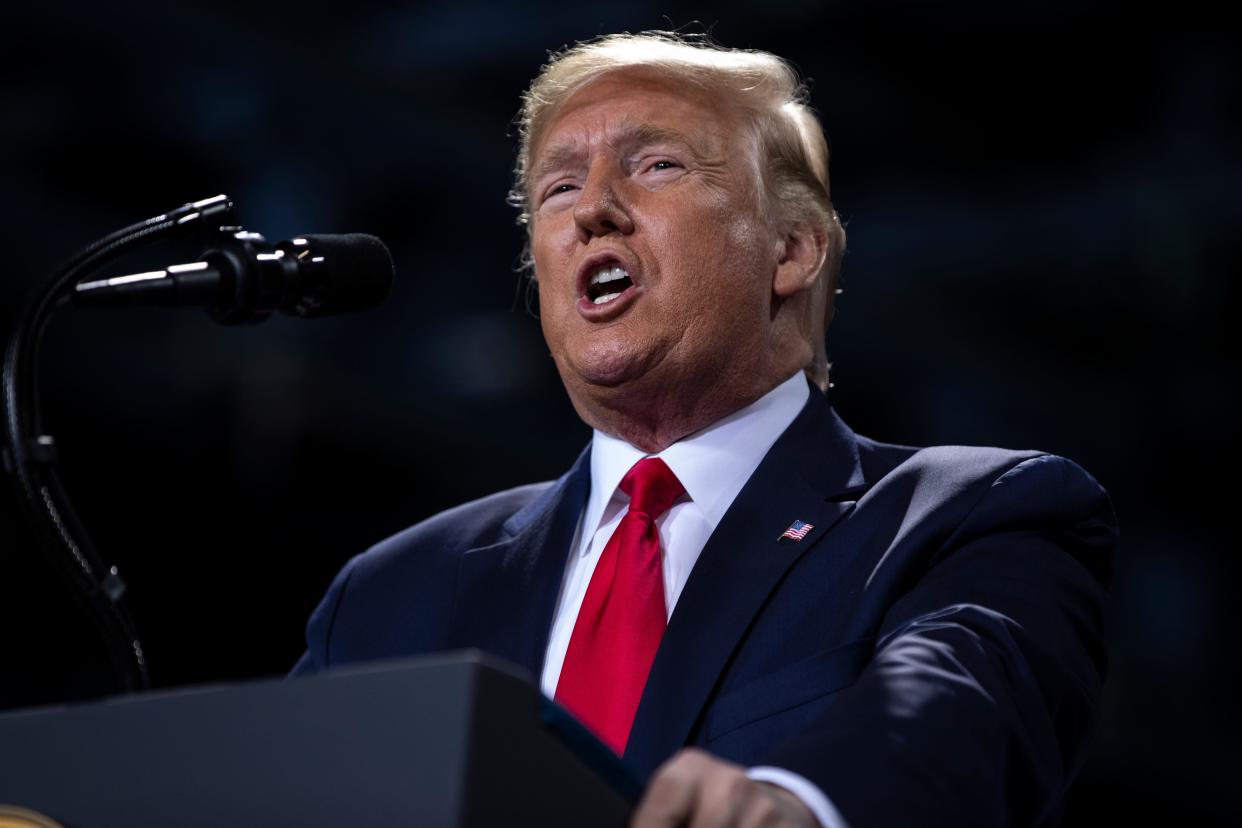GOP presidential hopeful sued to keep Donald Trump off the RI ballot. How Trump responded.
A local lawyer representing Donald Trump argued in Rhode Island U.S. District Court filings that the former president's actions in the leadup to the Jan. 6, 2021, riot at the U.S. Capitol cannot disqualify him from the 2024 ballot.
In courts across the country, write-in presidential candidate John Anthony Castro of Texas has argued that Trump is not eligible for next year's GOP presidential primary ballot because the 14th Amendment to the U.S. Constitution disqualifies anyone who engaged in or provided "aid of comfort" to an insurrection.
Castro's lawsuit, filed in U.S. District for Rhode Island, names Trump and Rhode Island Secretary of State Gregg Amore as defendants. Castro asks the court to order Trump off next year's presidential primary ballot on 14th Amendment grounds.

In a response filed last week on Trump's behalf, lawyer Gregory Piccirilli of Cranston argues that ballot eligibility rules are set by Congress and the Electoral College, not the courts, requiring that Castro's lawsuit be thrown out.
"Federal courts presented with similar cases challenging the qualifications of presidential candidates have uniformly indicated that they present nonjusticiable political questions reserved for those entities," the response says. "This Court should do likewise."
More: Among those suing to keep Trump off the ballot in Colorado? A former RI congresswoman.
He cited the rejection of "birther" lawsuits trying to exclude Barack Obama from the ballot in 2012 as an example of a political issue that the courts cannot interfere with.
The Trump response also argues that the 14th Amendment does not provide a private right of legal action for ordinary citizens to enforce, and that Castro is not personally harmed enough by Trump being on the ballot to have standing to sue.
"He fails to allege an injury that is sufficiently individual and particularized to him to confer standing. Plaintiff claims only to suffer a competitive harm because he purportedly must compete with President Trump," the Trump filing says. "But he fails to plausibly allege that this injures him in any particularized or concrete fashion."
Finally, the response argues that the language of the 14th Amendment bans someone engaged in insurrection from holding office, not from being on the ballot.
"The timing matters," the filing says. "Seeking to prematurely enforce a constitutional limitation effectively imposes an additional qualification on the office of the President, which is not permitted."
More: Where do the CD1 special election candidates stand on current issues? Here's a guide.
Although the procedural and technical legal arguments lead Trump's motion to dismiss the case, later in the response, Piccirilli argues that the former president's behavior on and after Jan. 6 did not amount to insurrection under the 14th Amendment anyway.
"The same representatives who voted for the Fourteenth Amendment understood that, under its terms, even strident and explicit antebellum advocacy for a future rebellion was not 'engaging in insurrection' or providing 'aid or comfort to the enem[y],'" it said.
Castro's bid to keep Trump off the ballot is seen as a long shot. Earlier this month, the U.S. Supreme Court declined to take the case.
This article originally appeared on The Providence Journal: Trump battles lawsuit to keep him off RI presidential ballot
